OACA is committed to driving sustainability by examining how our actions today will impact the world tomorrow. Working across the health sciences and through collaborations with our community and clinical partners, we are:
- advancing climate-smart initiatives that promote sustainability,
- educating our learners on the importance of and connection between sustainability, planetary health, and human health,
- partnering with individuals and other units at the University to advance basic and translational scientific discoveries,
- and placing value on long-term gains supported by high-risk, high-reward short- and mid-term efforts.
- CODE BLUE for Patient Earth conference (April 22-23). This in-person and virtual conference features health professional leaders across Minnesota who share their personal stories and experiences in efforts to address the health impacts of climate change. CEUs are available.
- Health Students for a Healthy Climate is geared toward health professional students seeking an interdisciplinary forum to learn about the health impacts of climate change and ways to lead action as future health professionals.
Advancing Interprofessional Education & Training
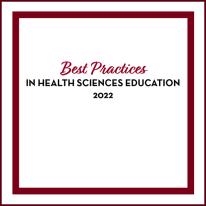
Best Practices in Health Sciences Education
This annual event brings together educators, administrators, learners, and thought leaders to foster connectivity and share cutting-edge best practices and research-based methodologies in health sciences education. Held May 4 and 5, this year's hybrid event is themed Inspiration, Imagination, and Improvisation in Health Sciences Education and Learning. The keynote address "Improvisation and the Art of Medicine: Adaptable Skills for an Uncertain World" will be presented by Belinda Fu, MD, from the University of Washington. The event is free but registration is required.
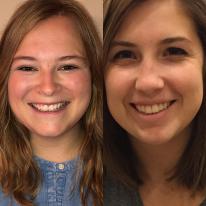
OACA Interprofessional Internship Spotlight: Center for Interprofessional Health
Bethany O'Bryan, BS, from the College of Veterinary Medicine, and Sara Dasler, BS, from the College of Liberal Arts, are working with the Center for Interprofessional Health to promote advanced personal leadership development in an interprofessional context, provide mentorship to and leadership of incoming intern cohorts, and contribute to the advancement of novel interprofessional initiatives in line with U of M Strategic Plan priorities through cross-sector collaboration approaches. The team has launched the blog, Collaboration Insights, which covers topics like implicit bias, team cohesion, and more. They are working on “Day in the Life” videos to discuss different professions and what they look like in a particular setting.
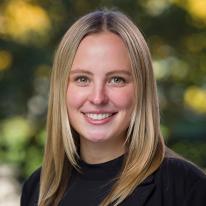
Students: What Do You Enjoy Most About Interprofessional Activities?
"When I began my MHA program, I was looking for a way to connect with other health professionals to enhance my knowledge around interprofessional education. As a future health care leader, it is so important to collaborate and communicate with all different health professions. Getting involved with interprofessional activities seemed like a great opportunity to practice and strengthen those skills, while networking and meeting people outside of my program. I have enjoyed learning about other programs and how my profession will overlap with the different disciplines. Interprofessional activities have opened my eyes to the variety of ways health care professionals can work together, and they have made me a better team player.” - Claire Knutson, MHA candidate
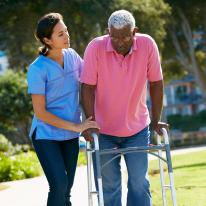
Minnesota Northstar GWEP Offers Mobility Resources for Future Clinicians
The Minnesota Northstar Geriatrics Workforce Enhancement Program (MN GWEP) is offering an up-to-date, concise resource for teaching specific geriatric care content as well as teaching tips to engage health professional students in practice settings. Colleagues in PT/OT are encouraged to check out Precepting Tips for Mobility Disability. MN GWEP also offers preceptor resources developed by an interprofessional group of geriatric experts for anyone teaching health professional students in clinical environments: Precepting Tips on the 4Ms Framework of an Age-Friendly Health System, Precepting Tips for Geriatric Depression, and General Preceptor Resources.
Driving Innovation & Discovery
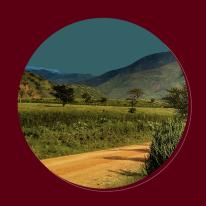
CGHSR Global Health Seed Grants
Advance your research with a Global Health Seed Grant. The Center for Global Health and Social Responsibility is requesting proposals for annual awards up to $25,000 to catalyze innovative global health research projects. Open to UMN faculty for interdisciplinary health research activities. Letters of intent are due April 29; full proposals are due May 20.
Partnering with Communities
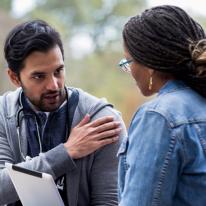
Community Partnership Grant
The Clinical & Translational Science Institute’s community partnership grant program helps cultivate relationships between members of Minnesota-based community organizations and University researchers and lay the groundwork for research collaborations that address health equity topics. Applications are due April 28.
U-Wide Events and Opportunities
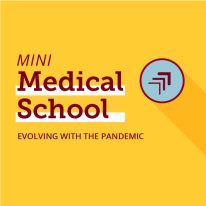
Watch Now: Mini Medical School
The recordings of Mini Medical School: Evolving with the Pandemic are now available for you to view at your convenience. The three-session series covered the latest on COVID, emotional wellbeing and resilience in a time of anger and burnout, and the long view: envisioning a healthier world. Thank you for joining us for the virtual spring series!
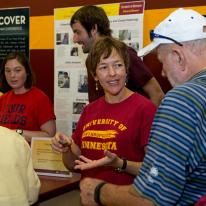
Driven to Discover (D2D) Research at County Fairs in Greater Minnesota
Faculty, staff, and students are invited to take advantage of a new opportunity to engage rural voices in research via the Driven to Discover research infrastructure expansion to Minnesota county fairs (D2D-County) throughout summer 2022. Applications are due May 1.



